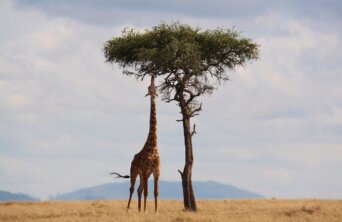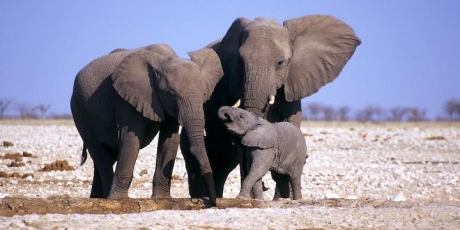- About
- Topics
- Story
- Magazine
- In-Depth
- Picks
- Opinion
- News
- Donate
- Signup for our newsletterOur Editors' Best PicksSend
Read, Debate: Engage.
| topic: | Climate Change |
|---|---|
| located: | Australia |
| editor: | Bob Koigi |
Up to 20 of the world’s threatened species face extinction following the recent devastating Australian wildfires, with 48,000 hectares of forest reserves that offered natural habitat to these species in East Gippsland having gone up in flames after decades of conservation. Pangolins, the world's most-trafficked mammal remains a microcosm of the alarming numbers in the illegal wildlife trade that is estimated to generate some £16 billion each year. Climate change continues to displace millions of animals from their original habitat.
Yet such startling scenarios don’t begin to describe the dangers of the global flora and fauna with studies now indicating that biodiversity is declining faster than at any time in human history.
This, despite the fact that wild animals and plants continue to play a vital role for humanity world over. More than 3 billion people globally rely on marine resources for their livelihoods with the annual market value of such coastal resources estimated at $3 trillion. Yet life below water has been under threat from unsustainable human activities.
Combining these threats and emerging ones like politics and policies that are anti-biodiversity points to a trend where the future generations risk not experiencing the breathtaking wildlife first hand and the balance of the planetary ecosystem will be greatly altered with catastrophic impacts.
In retrospect, the problems mankind creates, he corrects. This week the world marks World Wildlife Day, an event set aside seven years ago by the United Nations General Assembly to celebrate and raise awareness on the world’s fauna and flora, amplify the challenges faced by these species and call the global community to action in the fight against the threats to wildlife. Under the theme ‘Sustaining all life on earth’, this year’s event is a poignant reminder that unless the world addresses these challenges as a matter of urgency it is increasingly staring at accelerated extinction of animals, loss of forest cover and devastating epidemics. To quote UN Secretary General António Guterres: “Let us remind ourselves of our duty to preserve and sustainably use the vast variety of life on the planet. Let us push for a more caring, thoughtful and sustainable relationship with nature.”

